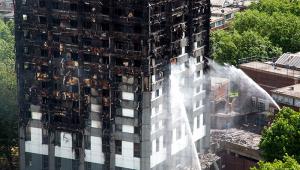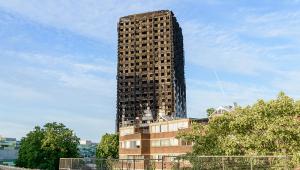Elizabeth Campbell has been chosen by the ruling Conservative group to replace Nicholas Paget-Brown, who resigned after being widely criticised for the council’s reponse to the fire.
Campbell told the BBC: “The first thing I want to do is I want to apologise.
"This is our community and we have failed it when people needed us the most. So, no buts, no ifs, no excuses. I am truly sorry.”
Although Campbell said, "things are going to change" and some councillors have presented her as a break with the previous administration, the council’s website shows she was cabinet member for family and children's services from 2013 until 27 May this year.
She has been a councillor in the borough since 2006. Communities secretary Sajid Javid told parliament on Monday that “it was right that [Paget-Brown] took the decision to move on”.
Chief executive Nicholas Holgate resigned a week earlier under pressure from Javid. MPs heard from Javid that a Grenfell Tower Victims Unit was operating from his department “providing a point of access into government” and that almost £2.5m had been distributed from the £5m Grenfell Tower Residents’ Discretionary Fund.
Relief was being coordinated by the Grenfell Response Team, led by John Barradell, chief executive of the City of London Corporation, supported by staff from other boroughs.
Javid said there had been a 100% failure rate in tests by the Building Research Establishment into the combustibility of 181 samples of cladding – the suspected cause of the blaze - from councils, housing associations and private landlords.
“It’s obviously disturbing that there are such a large number of buildings with combustible cladding, and the priority now is to make those buildings safe,” he said.
“Where appropriate mitigating measures cannot be implemented quickly landlords must provide alternative accommodation while the remedial work is carried out.”
The main work would focus on residential buildings of more than either 18 metres or six storeys in height and hospitals and schools would be assessed.










